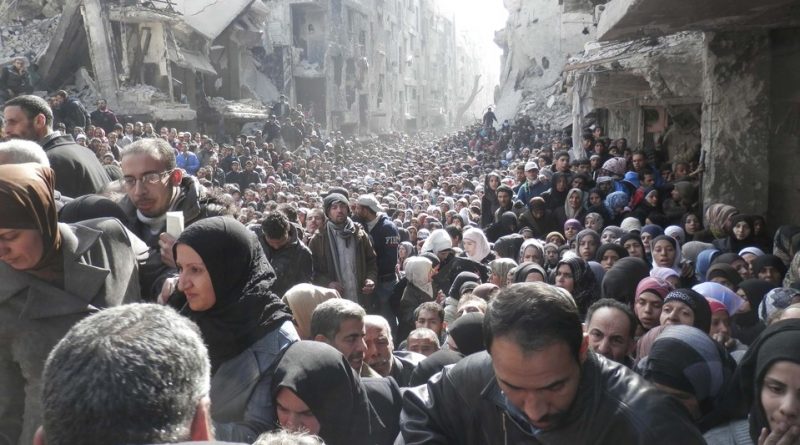School of Diplomacy Hosts UN Political Affairs Officer
Luisa Chainferber
Senior Correspondent
On April 12, the School of Diplomacy hosted Amanda Roberts, a United Nations Political Affairs Officer from the Middle East and the West Asia Division. Dr. Roberts currently sits as the acting head of the Syrian team at the UN. She sat down with students to discuss the current UN mediation process for peace in Syria.
First, Roberts mentioned that “process design” can do a lot if parties are willing to sit and negotiate. She explained that the Syrian government and its opposition have not yet sat down together with a UN mediator. The closest either side came to a face-to-face meeting were the UN talks where each side was in a different room and mediators could listen to each party’s perspective and then communicate with the other side.
She then commented that the UN Security Council Resolution 2254 is the guiding document regarding the negotiation process. The Security Council adopted this resolution after the first Russian intervention in the Syrian conflict. The resolution proposed high-level negotiations as well as new governance. Dr. Roberts emphasized how there is a sequence of events prescribed to UN mediators and Syrian parties that they were supposed to follow: formulation of a new governing body, new constitution, and then elections. She considered the resolution as a response to what happened in Libya.
In addition, Dr. Roberts explained that there are legitimate critiques to the Syrian Constitutional Committee. The issue in Syria is not constitutional per se, given that the current constitution guarantees equal rights and consolidates presidential power. Accordingly, she mentioned that there are several questions from external actors regarding what a constitutional committee would look like and what constitutional issues the committee would address.
Afterward, Dr. Roberts noted that the mediation process must be justice-centric. If the Constitutional Committee is established, it would be the first time that the government and the opposition forces would sit together with a third group from civil society and the UN. She expressed that this interaction would be beneficial to address issues of governance and make sure that all rights are preserved.
Dr. Roberts also mentioned the Women’s Advisory Board and the Civil Society Advisory Board in her talk. According to her, these bodies help civil society to place direct input in the UN’s mediation process. While some critics believe that the auxiliary function does not fix the issue at hand, Dr. Roberts emphasized how the boards assist the UN mediators to see the conflict from multiple perspectives.
Accordingly, Roberts described a few critiques regarding how the boards would communicate with civil society in Syria. She stated that the Envoy Office heard these concerns, and that the Office is working on methods to communicate more broadly without breaking the confidentiality of the process. Dr. Roberts believes that this work helps make the UN more accountable, especially given that accountability represents an important issue for social justice.
Dr. Roberts also added that, even with the processes from UN mediation, it is necessary to have parties who are willing to engage. Without meaningful engagement and willingness to make concessions, it is impossible to emerge from the conflict in a sustainable and just way. Dr. Roberts admitted that the conflict in Syria reached a point at which any move could cause massive escalation. As such, local negotiations have no security guarantees despite the good work done by local people.
Dr. Andrea Bartoli, Dean of the School of Diplomacy and International Relations and international conflict resolution expert, thanked Dr. Roberts for her insights and highlighted how Syria has the most documented human rights tragedy. Dean Bartoli emphasized the need for Diplomacy students to use their knowledge for meaningful practice and action.

